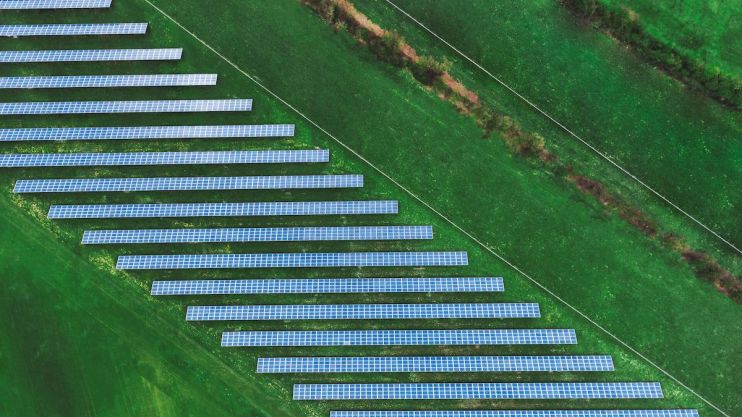Sunak to clamp down on farmland solar panels in fresh planning proposals

Prime Minister Rishi Sunak is planning to revive efforts to clamp down on solar panel installations across British farmland, in the latest watering down of the government’s green ambitions.
The government is expected to give planning officials the power to reject new developments – including renewable projects – on the basis of food security, as first reported by The Observer.
This means solar farms could be blocked by local authorities if officials believe a prospective project could “put food security at risk”, with ministers believing concerns over food supplies should be on par with energy security ambitions.
Downing Street is expected to cite food shortages in Europe and the war in Ukraine to justify the decision, with environment secretary Therese Coffey also reportedly backing the move.
The powers will be outlined in the National Policy Planning Framework, with an amendment tabled by Buckingham MP Greg Smith.
The backbencher has persistently campaigned against solar panels on farmland, with MPs seeking to pacify local opposition worried over new developments.
It could also enable ministers to clamp down on further housebuilding and a wide range of developments beyond green energy projects.
City A.M. understands the solar industry is less concerned about the proposals than former Prime Minister Liz Truss’ targeted plans to reduce panels on farmland last year.
Truss sought to reduce the viable farmland for solar panels to less than 60 per cent of farmland by preventing middling quality fields from being used for developments.
Those plans, which were criticised by the National Farmers Union, were dropped when Truss left office.
The industry has known about the new plans since last December, when Smith first secured concessions from the government to make food security concerns a key factor in the planning process following negotiations with levelling-up secretary Michael Gove.
At the time, Smith said: “This is a huge step forward for farming, land use, and good production in our country.”
This is the latest dilution of green policies ahead of next year’s election, after Sunak announced delayed the planned phase out of fossil fuel powered cars and boilers.
The government is still targeting a ramp up from 15GW to 70GW of solar power generation by 2035 as part of its energy security strategy unveiled last year.
At the Conservative Party Conference earlier this month, energy secretary Claire Coutinho confirmed plans to liberalise rules for businesses hoping to install more panels on their rooftops.
This was to “reduce pressure on rural communities,” Coutinho said during her speech at the event, in a bid to make it easier for panels to be placed on industrial rooftops, warehouses, car parks and factories.
“We’ll cut through the planning red tape that limits the amount of solar businesses can currently install, protecting the countryside, boosting renewables and, according to industry, saving businesses up to £3bn per year,” she said.
When asked about the reports, a department for levelling up, housing and communities spokesperson said: “This is inaccurate – no decision has been made, we received thousands of replies to our consultation and are considering these before responding.”